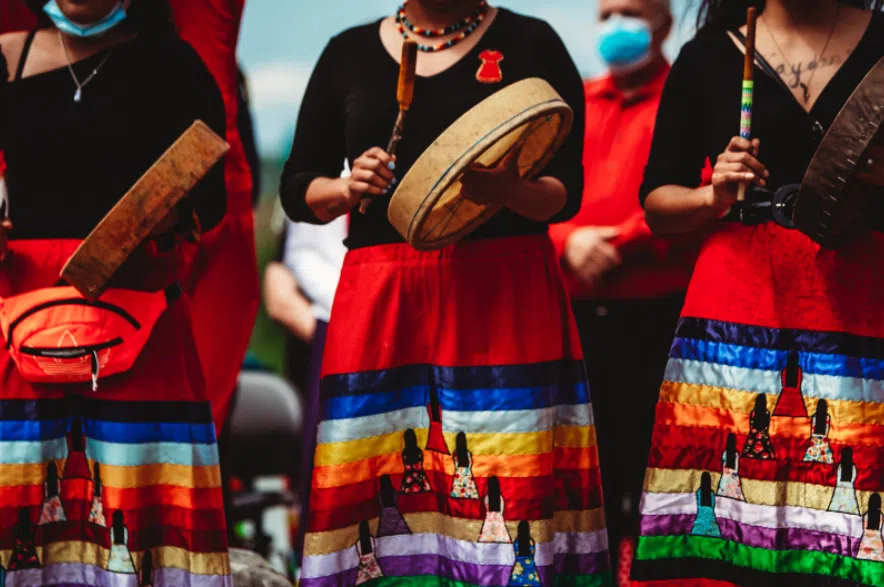A vital conversation that started in Prince Albert a few years ago will continue next month when the city hosts two free public events focused on reconciliation and anti-racism.
Cadmus Delorme, who was Chief of Cowessess First Nation, had come to Prince Albert in 2022 to share his personal stories and inspirational words following the discovery of 751 unmarked graves on Cowessess at the site of the former Marieval Indian Residential School. It was part of a handful of discoveries at former school sites across the country.
Read more:
- Métis housing corporation to develop low-income units on civic centre site
- Ochapowace Nation to build recovery and wellness centre with 20 beds
- B.C. chief wants Oscar-nominated residential school film to be part of curriculum
In a press release, the City of Prince Albert said it is committed to advancing those conversations and reconciliation in the community by inviting residents to continue engaging in learning opportunities like the ones they are offering over the next few weeks.
On March 19, Becky Sasakamoose-Kuffner and Lorie Harrison will share their stories which will include “hard truths, honest answers and real solutions to help identify a path forward.” The event at the E.A. Rawlinson Centre for the Arts is free, but tickets are needed to attend.
The second event is actually a series presented over three different days (Feb. 26, March 5 and March 19) by the Saskatoon Anti-Racism Network and Heart-Song Complex Trauma Program.
A description from the city on the event said the series will introduce participants to concepts related to trauma and anti-racism by exploring the historical roots of colonialism and its ongoing impact on Canadian institutions, among other lessons.
The Truth and Reconciliation Commission’s Call to Action No. 57 is “educating public servants about Indigenous history, including the legacy of residential schools, the United Nations Declaration on the Rights of Indigenous Peoples, Treaties and Indigenous rights, Indigenous law, and Indigenous-Crown relations.”
“One of the most meaningful ways we can support reconciliation is through education. These sessions provide an opportunity for residents to gain a deeper understanding of Indigenous history and the ongoing impacts of colonialism, foster a more inclusive and informed community,” Director of Corporate Services for the city, Kiley Bear said.
By engaging in the conversations, the hope is residents will build intercultural understanding and strengthen relationships.
“Learning about Indigenous history, racism and human rights helps us move forward together toward our road to reconciliation. This is core to our city’s cultural plan — a city with a strong and proud culture, where we all feel we belong,” said Judy MacLeod Campbell, Arts and Culture Division Manager.
The National Anti-Racism Strategy, Heritage Canada provides funding support for this training.
Read more:











